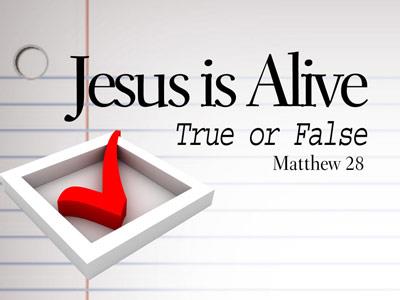-
I Know My Redeemer Lives
Contributed by Austin Mansfield on Nov 28, 2017 (message contributor)
Summary: Like the Old Testament kinsman-redeemer, Jesus stands ready to reclaim and restore our place in his kingdom, rescue us from death, free us from slavery to sin, and be our advocate before the Father.
Additional Scripture: Luke 20:27-38
In the name of the Father, and of the Son, and of the Holy Spirit. May the words of my mouth and the meditation of my heart be acceptable to you, Lord, my rock and my redeemer. Amen. (Psalm 19:14)
If you ever think you’re having a bad day, read the Book of Job. Whatever your problems are, they will pale in comparison. Job is a devoted and faithful follower of God who received incredible blessings in abundance from God. Great wealth, property, and family. He would pray for his sons, and offer sacrifices for them, just in case they had sinned.
Yet God allowed Satan to strip Job of his wealth and health, with multiple calamities destroying his property and livestock, killing his sons at the same time.
Job’s response has been immortalized, often quoted by people with no idea about where it originated: “The Lord giveth and the Lord taketh away.”
It’s really the only attitude we can have during devastation; and I know that it’s not easy. Many of our fellow San Diegans lost everything a few weeks ago, and I know only a few who are able to keep that Job-like attitude that God gives and God takes away.
When we think about Job, that’s the image that usually comes to mind. The poor, former rich guy covered in boils and sores, wearing sackcloth and ash, but still praising God.
We tend to miss his understanding of salvation.
In the midst of his suffering, he understands that there is a redeemer who will save him and bring him to eternal life. He doesn’t know the name of this redeemer, but he knows who Jesus is.
Scholars are not in agreement about the origin of the Book of Job. Some think the story came down through the Edomites, written sometime after Jacob. Some believe it is even earlier than Genesis, since Job doesn’t include the rules and regulations associated with Mosaic Law, which would be somewhere around 1500 B.C. or earlier.
Others believe it was written during the time of King David or King Solomon, which would be about 1000 B.C. or so (986 B.C.).
Still others believe it was written during Ezekiel’s time in the Babylonian captivity, which would put it around the late 500s B.C. (598-573 B.C).
Even the latest dating, however, puts Job at a full six centuries before Christ’s ministry on earth. Yet he describes his knowledge of his redeemer with such deep sincerity that he wishes his words could be carved in rock and filled with lead for people to read centuries later!
Job describes that even after he dies, his Redeemer will still live and will still stand even at the end of days. And in his resurrected body, Job will see God at his side. He won’t see any other God besides the one true God he knows will save him.
In verse 16 of our Psalm 17, of which we heard a portion today, the psalmist writes, “But at my vindication I shall see your face; when I awake, I shall be satisfied, beholding your likeness.”
He’s not planning on taking a nap; he’s talking about the resurrection of the dead. Job doubts that he will be justified during his lifetime. But he is sure that he will stand before God in a physical body fully vindicated by his redeemer.
The Hebrew word that’s translated as “Redeemer” refers to the Old Testament term, “Kinsmen-Redeemer,” who was a close relative able to reclaim and restore the person’s property (Lev 25:23-24, 39-55), avenge the person’s death (Deut 19:6-12), free the person from slavery (Lev 25:25), and even go to court on behalf of his wronged relative (Prov 23:10-11).
Probably the best known example of the kinsman-redeemer is Boaz in the Book of Ruth. He was willing to rescue Ruth and give her a new life.
Job is convinced that his own kinsman-redeemer will be able to vindicate him, even on the other side of death, and that Job will be there to see it happen!
In Job’s time, very little was known about the afterlife — it wasn’t until many centuries later that Jesus and the writers of the New Testament would explain the significance of Christ’s death and resurrection.
Job’s statement gives us a powerful example of faith. He knew in his heart that he would be redeemed; he just didn’t know it was Jesus.
Sometime ago, a traveling evangelist was riding along and singing to himself a song called, “I’ve Been Redeemed.”
A fellow passenger heard him and began to sing along. When they finished singing the evangelist asked the stranger if he had been redeemed.
The man said, “Yes, praise the Lord.”
So the evangelist asked him when it was.
“About nineteen hundred years ago,” the man replied.

 Sermon Central
Sermon Central



